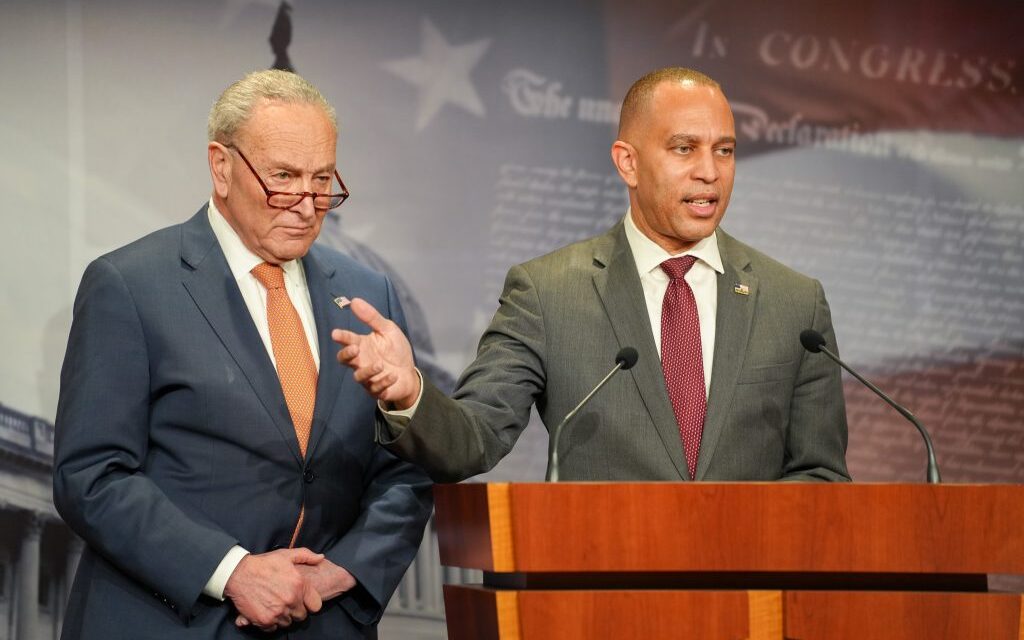Sébastien Lecornu resigned as French Prime Minister less than a month into the job. The reason is that he cannot cobble together a coalition that will pass a budget. As he explained, the balance of power and the mood of the country does not favor compromise:
In a last-ditch move, Mr. Lecornu announced last week that he would not use a constitutional prerogative to push through a spending bill without a full vote in Parliament, a tool that his predecessors had often used to force lawmakers to pass a budget. That announcement, promising that lawmakers would have their say, was a risky gamble aimed at staving off the threat of being toppled before budget discussions had even begun.
But in his speech on Monday, Mr. Lecornu accused France’s parties of failing to seize the opportunity. He blamed “partisan appetites,” suggesting that many politicians were more interested in preparing for upcoming elections, and he argued that the absence of cross-party negotiations in French politics had set him up for failure.
“Political parties are continuing to act as though they all have an absolute majority in the National Assembly,” Mr. Lecornu said, referring to France’s lower house. “I was ready to compromise, but each political party wants the other to adopt its whole platform.”
It’s worth noting that Lecornu had the theoretical option of using “a constitutional prerogative” to pass a budget but that attempting to exercise the option might have cost him his job. While Lecornu is the third prime minister to quit in the last year, his was the briefest term in France’s history. Obviously, the country is suffering from partisan paralysis. Americans, whose government is currently shutdown through lack of funding, can certainly relate.
The Republican Party has the power to fund the government, but they haven’t yet decided to exercise it. It doesn’t require “a constitutional prerogative” in our system, but simply a decision to do away with the Senate filibuster. The filibuster is a longstanding norm of the Senate, but it is nothing more than a rule. There is nothing in the U.S. Constitution that describes how many votes it should take to pass an appropriations bill. If it has traditionally taken sixty votes, it can easily be changed to 51.
The 60-vote threshold has already been abounded for federal judges and White House appointments. It is only standing at the moment for legislative acts because the Republicans see an advantage in granting some limited power to the opposition. The moment that they decide this power is disadvantageous, they will take it away.
There are two completely distinct reasons why the Republicans have allowed the filibuster to stand and cause a government shutdown.
The first is very traditional. Power in Congress seesaws between the Republicans and Democrats by design, which means that the Republicans can anticipate being in the minority as some point in the future. When that happens, they want to have to limited power that a filibuster grants to the minority party.
The second is that, in the era of Donald Trump, they benefit when the Democrats share responsibility for the direction of the government. When the Democrats strike a deal to fund the government, they are ratifying the governments’ spending priorities. If the Democrats pass appropriation bills for the Justice Department and the Pentagon that don’t proscribe them from committing felonies and other unconstitutional acts, then they are partially responsible for the resulting crimes.
They are a lot of people offering the Democrats’ advice about what they should demand in exchange for the votes to reopen the government. Some think that the current plan of basing it on health care is flawed. I’ve seen recommendations that release of the Epstein files should be the demand. The first thing these armchair advisers should internalize is that the Democrats’ power to make any demands at all is completely ephemeral. The Republicans do not need to make any concessions at all, and they will only make a deal that they feel disadvantages the Democrats. At a minimum, they want to morally compromise the opposition by making them share responsibility for Trump’s crimes.
The second thing to realize is that serving as a strictly nominal opposition that verbally opposes crimes while willingly funding them, does make them complicit and does make them into collaborators in the negative sense of that word.
The third thing to realize is that insofar as the Democrats want to win a political battle here, the fruits of that victory can only come through victories at the ballot box. In this sense, it’s understandable that folks will strategize about things that are peripheral to the main crisis, like health care subsidies or the Epstein files. These issues may poll well and keep the opposition coalition intact. But the main crisis is a threat to the free and fair elections necessary to win any political battle. If the governing party redraws the district lines to protect incumbents, you can’t defeat them simply by winning a political argument or running a great campaign. If they selectively purge your voters from the registration rolls or they use the Justice Department and partisan judges to strike down legitimate election results, you cannot prevail in the ordinary sense.
The fourth thing to realize is that even if you do win elections against the Republicans by, say, electing governors in states like California, Oregon and Illinois, the current Republican Party supports usurping their powers, taking away control of their military guards, and deploying federal troops and ICE officials in their cities (and soon their polling places) to conduct operations against their consent.
From Democratic members of Congress, this all presents a very bad conundrum. They’re elected primarily to make funding decisions. The filibuster gives them a say in those decisions even when they are in the minority. This is ordinarily quite valuable. But it is not very valuable right now. The Democrats can’t even get the Republicans to come to the table and respond to their requests, let alone their demands. If they do eventually extract some concessions, they will fall galactically short of addressing the moral concerns presented by the Trump’s administration’s policies and thereby make the Democrats responsible for funding those policies.
This last point needs a little closer treatment because a minority party that votes for a budget or spending bills will always be voting for policies they oppose, sometimes in strong moral terms. Getting some concessions or priorities addressed is the job of a minority legislator. But there’s a difference between voting for cuts in essential social programs and services, for example, and funding a Pentagon that is murdering fisherman on the whim of Stephen Miller. There’s a difference between voting to fund the Pentagon even as it pursues an anti-woke jihad and voting to fund it when it is secretly flying kidnapped people to be imprisoned in foreign countries with no due process.
The problem here is the breadth and seriousness of the Trump administration’s criminal activities and violations of human rights. So long as they behave like this, it’s not possible to have clean hands and participate in or fund the government in any way. Elected officials’ options are resignation or total opposition to all funding, and not only until some paltry concession can be extracted.
So, what the elected Democrats should do now is make the Republicans remove the filibuster and fund the government themselves. All their efforts should go to fighting to have a free and fair shot at winning the next federal elections. They should make no more funding demands, or any demands at all in return for their votes, but instead withhold their votes and any pretense to cooperation or collaboration with this regime.
The idea that they can benefit or help the country with half-measures is delusional and will result in only complicity and shame.
.








Hear, hear! Well said.
While the moral issues are ultimately the most important, I think it’s worth trying to drive home (at least within the Democratic coalition) the plain power politics issues: the *only* power Democrats currently have federally is the power to say “no”.
The instructive model for Democrats here is George W. Bush’s 2005 campaign to gut Social Security. Bush had just won re-election with the only popular vote majority of any Republican this century and claimed a “mandate for change”. He made Social Security his #1 domestic priority in the State of the Union speech and went on a two month national tour to rally support. All sorts of prominent Democrats (reps, senators, strategists, pundits) talked anxiously about the need for Democrats to prove their seriousness and maturity by coming to the table and offering to negotiate.
Nancy Pelosi said, in effect, “No. We’re Democrats. We support Social Security. We’re against destroying it.”
As a result, the more Bush talked about it, the more the public opposed his ideas. The proposal never even came to a vote. Bush lost political capital (and even more with his handling of Hurricane Katrina in August, and as the Iraq War dragged on seemingly without end or purpose), and Republicans lost control of the House and Senate in the 2006 elections.
These are, obviously, different times, but the basic political lesson—use the power you have to stand for what you believe in and to build the power you need—still applies.